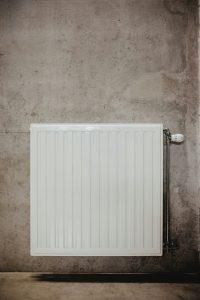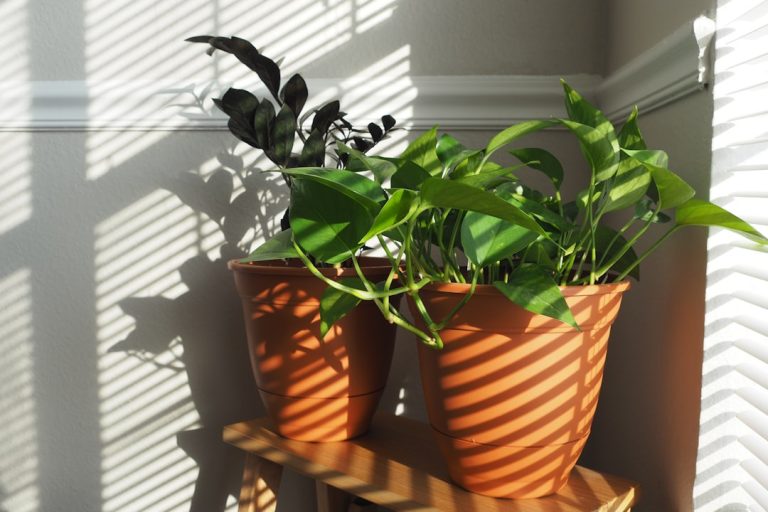Combi boilers, also known as combination boilers, are a popular choice for heating and hot water systems in many homes. They are compact and efficient, providing both heating and hot water on demand without the need for a separate water tank. Combi boilers work by heating water directly from the mains supply and delivering it to the taps or radiators when needed.
Maximizing efficiency in combi boilers is crucial for several reasons. Firstly, it can help save money on energy bills by reducing wastage. When a combi boiler operates efficiently, it uses less fuel to produce the same amount of heat or hot water, resulting in lower energy consumption and cost savings. Secondly, maximizing efficiency is essential for reducing energy waste and minimizing environmental impact. By using less fuel, combi boilers contribute to a greener and more sustainable future.
Key Takeaways
- Regular maintenance is crucial for optimal performance of combi boilers.
- Choosing the right size of combi boiler ensures adequate heating and hot water supply.
- Upgrading to a smart thermostat allows for remote control of heating.
- Insulating your home reduces heat loss and energy waste.
- Flushing the system removes sludge and improves efficiency.
Regular Maintenance: The Key to Optimal Performance
Regular maintenance is vital for ensuring the optimal performance of a combi boiler. Neglecting maintenance can lead to breakdowns, reduced efficiency, and costly repairs. It is recommended to have a professional service your combi boiler annually to keep it in good working condition.
There are also some simple maintenance tasks that homeowners can perform themselves to keep their combi boilers running smoothly. One important task is checking the pressure regularly. Combi boilers rely on maintaining a certain pressure level to function correctly. If the pressure drops too low, it can cause the boiler to shut down or fail to provide adequate heating or hot water. Another maintenance task is bleeding radiators to remove trapped air, which can prevent them from heating up properly.
Choosing the Right Size: Ensuring Adequate Heating and Hot Water Supply
Choosing the right size combi boiler for your home is crucial for ensuring adequate heating and hot water supply. A boiler that is too small may struggle to meet the demand, resulting in insufficient heating or hot water. On the other hand, a boiler that is too large may waste energy and lead to higher energy bills.
To determine the right size combi boiler for your home, you need to consider factors such as the size of your property, the number of bathrooms, and the number of occupants. It is recommended to consult with a heating engineer or a professional installer who can assess your needs and recommend the appropriate size.
Upgrading to a Smart Thermostat: Controlling Your Heating Remotely
| Metrics | Value |
|---|---|
| Energy Savings | 10-15% |
| Cost Savings | 100-150 per year |
| Compatibility | Works with most HVAC systems |
| Convenience | Control heating remotely via smartphone app |
| Installation | Easy DIY installation or professional installation available |
Upgrading to a smart thermostat is another way to maximize efficiency in combi boilers. Smart thermostats allow homeowners to control their heating remotely using a smartphone app or a web portal. This means you can adjust the temperature of your home even when you are not there, ensuring that you only heat your home when necessary.
Smart thermostats also offer features such as scheduling, learning algorithms, and geofencing, which can further optimize energy usage. For example, you can set schedules for different times of the day or week, so your heating automatically adjusts based on your routine. Some smart thermostats even have learning capabilities that adapt to your preferences over time.
Insulating Your Home: Reducing Heat Loss and Energy Waste
Insulating your home is an effective way to reduce heat loss and energy waste, which can help maximize efficiency in combi boilers. Heat loss occurs when warm air escapes from your home through poorly insulated walls, roofs, floors, and windows. By improving insulation, you can keep more heat inside your home and reduce the amount of energy needed to maintain a comfortable temperature.
There are several ways to insulate your home. Adding loft insulation is one of the most effective methods as heat rises, and an uninsulated loft can account for significant heat loss. Draught-proofing doors and windows is another simple yet effective way to prevent cold air from entering and warm air from escaping. Other insulation measures include cavity wall insulation, floor insulation, and insulating pipes and tanks.
Installing Radiator Reflectors: Maximizing Heat Output

Installing radiator reflectors is a cost-effective way to maximize heat output from your radiators. Radiator reflectors are thin sheets of material that are placed behind radiators to reflect heat back into the room instead of allowing it to be absorbed by the wall.
Radiator reflectors work by reflecting heat radiation, which is the primary method of heat transfer from a radiator. By reflecting this heat back into the room, radiator reflectors can increase the efficiency of your heating system and reduce energy waste. They are particularly effective on external walls or walls that are poorly insulated.
Installing radiator reflectors is a simple DIY task that can be done with basic tools. The reflectors can be easily cut to size and attached to the wall using adhesive or magnetic strips. It is important to ensure that the reflectors are installed correctly and do not obstruct the flow of air around the radiator.
Using TRVs: Regulating Temperature in Individual Rooms
Thermostatic radiator valves (TRVs) are devices that allow you to regulate the temperature in individual rooms by controlling the flow of hot water into the radiators. TRVs work by sensing the temperature in a room and adjusting the flow of hot water accordingly.
Using TRVs can help maximize efficiency in combi boilers by allowing you to heat only the rooms that need it. For example, if a room is rarely used or does not require as much heating, you can set the TRV to a lower temperature or even turn it off completely. This prevents unnecessary energy consumption and reduces energy waste.
TRVs are relatively easy to install and can be retrofitted onto most radiators. However, it is recommended to have them installed by a professional plumber or heating engineer to ensure they are fitted correctly and calibrated properly.
Flushing the System: Removing Sludge and Improving Efficiency
Flushing the system is an essential maintenance task that involves removing sludge and debris from the pipes and radiators. Over time, sludge can build up in the system, reducing the efficiency of the combi boiler and causing problems such as cold spots on radiators, noisy operation, and reduced heat output.
Flushing the system involves using a power flush machine to circulate a cleaning solution through the pipes and radiators, dislodging and removing any sludge or debris. This process helps restore the efficiency of the heating system and improves its overall performance.
It is recommended to have a professional perform a power flush as they have the necessary equipment and expertise to carry out the task safely and effectively. Regular power flushing can help maintain the efficiency of your combi boiler and extend its lifespan.
Going Green: Choosing Eco-Friendly Combi Boilers
Choosing an eco-friendly combi boiler is not only beneficial for the environment but also for your energy bills. Eco-friendly combi boilers are designed to be highly efficient, using less fuel to produce heat or hot water compared to conventional boilers. This results in lower energy consumption, reduced carbon emissions, and cost savings.
When choosing an eco-friendly combi boiler, look for models with high energy efficiency ratings such as ErP (Energy-related Products) ratings. These ratings provide information on the energy efficiency of a boiler, with higher ratings indicating better efficiency. It is also worth considering boilers that use renewable energy sources such as solar thermal or biomass.
Additionally, eco-friendly combi boilers often come with advanced features such as modulating burners, which adjust the heat output based on demand, and condensing technology, which recovers heat from flue gases. These features further enhance efficiency and reduce energy waste.
Taking Action to Maximize Efficiency and Save Money
In conclusion, maximizing efficiency in combi boilers is essential for saving money and reducing energy waste. Regular maintenance, choosing the right size boiler, upgrading to a smart thermostat, insulating your home, installing radiator reflectors, using TRVs, flushing the system, and choosing eco-friendly boilers are all effective ways to maximize efficiency.
By implementing these tips and taking action, homeowners can enjoy lower energy bills, a more comfortable living environment, and contribute to a greener and more sustainable future. It is important to prioritize efficiency in combi boilers to save money, reduce energy waste, and make a positive impact on the environment.
If you’re interested in sustainable home designs and ways to reduce your carbon footprint, you might also enjoy reading this article on “Building for the Future: Sustainable Home Designs That Will Save the Planet.” It provides valuable insights and tips on how to create an eco-friendly living space that promotes energy efficiency and environmental conservation. Check it out here.
FAQs
What is a combi boiler?
A combi boiler, also known as a combination boiler, is a type of central heating system that provides both hot water and heating to a property from a single unit.
How does a combi boiler work?
A combi boiler works by heating water directly from the mains supply, which is then distributed throughout the property for both heating and hot water purposes. This means that there is no need for a separate hot water tank or cylinder.
What are some tips for maintaining a combi boiler?
Some tips for maintaining a combi boiler include regularly checking the pressure, bleeding the radiators, and having an annual service carried out by a qualified engineer.
What are the benefits of a combi boiler?
The benefits of a combi boiler include increased energy efficiency, reduced installation costs, and a more compact design that takes up less space in the home.
What are some common problems with combi boilers?
Some common problems with combi boilers include low pressure, leaks, and issues with the heating or hot water not working properly. These issues can often be resolved by a qualified engineer.
Can a combi boiler be used with solar panels?
Yes, a combi boiler can be used with solar panels to provide hot water and heating to a property. This is known as a solar combi system and can help to reduce energy bills and carbon emissions.


